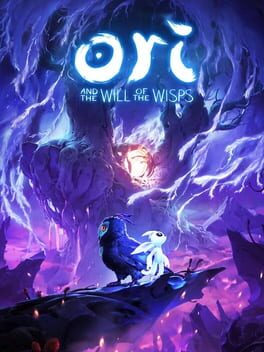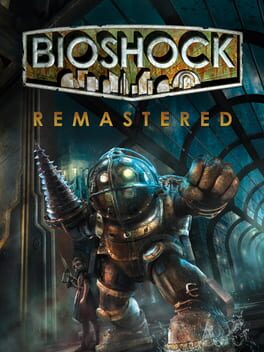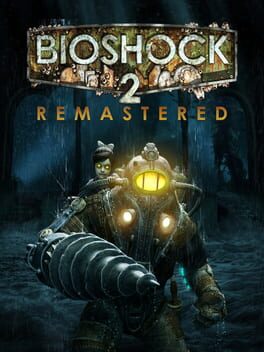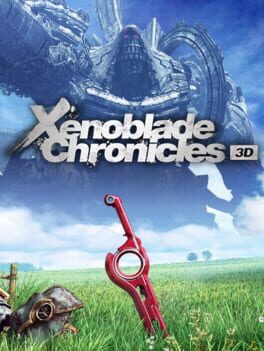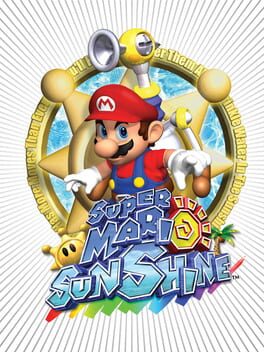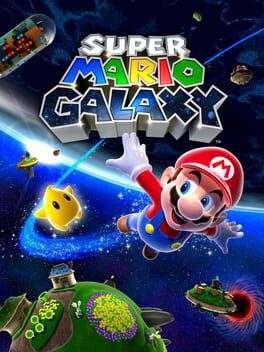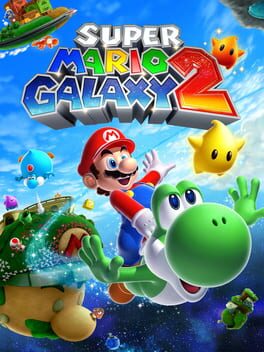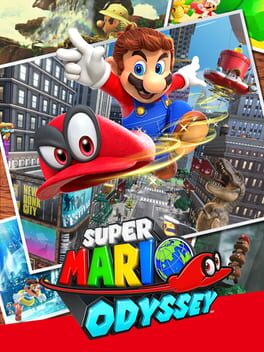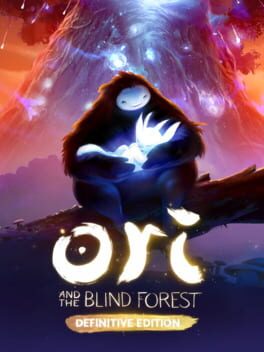EldestBrisingr
I grew up playing Nintendo games and still play them. Suffice to say I did not think this type of game would appeal to me. How wrong I was! Dark Souls is exceptional in many ways, but I feel its appeal is widely misunderstood. The game is difficult, sure, but if a game's status is defined by its difficulty, then why are easier game franchises like Kirby still appreciated? No, Dark Souls is a masterpiece because of how unpredictable, yet focused its world is. New ideas and enemy encounters are introduced in every level. At times, they border on being frustrating. And yet, I couldn't stop playing.
The cherry on top of these expertly-designed challenges is the absolutely sublime level design. Levels provide shortcuts after overcoming a challenge that link back to your current bonfire (checkpoint). These shortcuts are smartly placed to give players a moment of respite after overcoming seemingly impossible odds.
This setup alone makes for a pretty good game, but there are even more things to marvel at in Dark Souls. For those who have yet to play it, I will not spoil these secrets. And if you need any advice going in, it would be to have two things: patience and humility. The former because the game is challenging and the latter because the game's challenges are fair, with very few exceptions. I once thought the game was unreasonable, but I persevered and was rewarded for it. If you stick with it, you will never forget your experience. There is a reason why so many games have tried imitating it with very little success.
The cherry on top of these expertly-designed challenges is the absolutely sublime level design. Levels provide shortcuts after overcoming a challenge that link back to your current bonfire (checkpoint). These shortcuts are smartly placed to give players a moment of respite after overcoming seemingly impossible odds.
This setup alone makes for a pretty good game, but there are even more things to marvel at in Dark Souls. For those who have yet to play it, I will not spoil these secrets. And if you need any advice going in, it would be to have two things: patience and humility. The former because the game is challenging and the latter because the game's challenges are fair, with very few exceptions. I once thought the game was unreasonable, but I persevered and was rewarded for it. If you stick with it, you will never forget your experience. There is a reason why so many games have tried imitating it with very little success.
2017
The only game I've played that recaptured Dark Souls' magic, Hollow Knight is the total package. Others have spoken at length on what they love about this game. I could talk about the incredible world design, thrilling bosses, amazing music, and surprisingly deep gameplay, but what's always stood out to me is how gratifying the exploration is.
A lot of Metroidvanias fall into the trap of having collectibles or equipment that are not very fun for certain players to use because of their playstyle. Hollow Knight's charms (the main collectible outside of power-ups) avoid this issue because you need to find them in order to buy more slots for equipping them. The charms work like badges in Paper Mario: The Thousand-Year Door, giving the player options to buff their character, with the most powerful charms taking up the most space. Because charms must be found to buy more slots, a player will not feel like they wasted their time finding one they don't like since that charm will eventually allow them to equip more charms they do like. It's a small, but brilliant touch that makes exploration rewarding even on subsequent playthroughs.
The intrinsic desire to explore exists in the hearts of most gamers and Hollow Knight not only delivers on that, but maintains it long after you expect to have found everything.
A lot of Metroidvanias fall into the trap of having collectibles or equipment that are not very fun for certain players to use because of their playstyle. Hollow Knight's charms (the main collectible outside of power-ups) avoid this issue because you need to find them in order to buy more slots for equipping them. The charms work like badges in Paper Mario: The Thousand-Year Door, giving the player options to buff their character, with the most powerful charms taking up the most space. Because charms must be found to buy more slots, a player will not feel like they wasted their time finding one they don't like since that charm will eventually allow them to equip more charms they do like. It's a small, but brilliant touch that makes exploration rewarding even on subsequent playthroughs.
The intrinsic desire to explore exists in the hearts of most gamers and Hollow Knight not only delivers on that, but maintains it long after you expect to have found everything.
This review contains spoilers
I loved Ori and the Blind Forest, so logically this game should be better with all of its additions, right? Well, no. To me, the game's additions only serve to highlight how unfocused it really is.
I'll quickly go over the positives. The game looks incredible and the level design is great, sometimes brilliant. Ori feels great to control when platforming. These are very important in a platformer, so everything checks out there. Everything else, not so much.
The bosses were not fun at all. The excessive visual flourishes and 2.5D art style make it difficult to see and determine where the hitboxes are, which makes contact damage extremely annoying. The floaty platforming physics also do not pair well with these bosses, especially since the preceding enemies are never complex enough to prepare players for the multi-phased bosses.
Enemy variety is also disappointing. The first game admittedly only had a handful of enemies, but the combat was never emphasized as much as in Will of the Wisps. The new combat isn't much deeper than its predecessor (mash a button and occasionally evade) and yet you still fight a lot of the same enemies. Attacking enemies also stops Ori in place, a downgrade from Blind Forest letting you weave through enemy bullets while attacking.
The story was extremely disappointing. It was essentially a weaker version of the first game's story (save the forest). I did not feel for Ku when she died because the game barely gave me time to spend with her. Shriek is a weaker version of Kuro from Blind Forest because she has no redemption arc. Why did the game feel the need to have more dialogue too? The first game barely had any and its story was still very well-told.
Remember how Sein in Blind Forest would attack enemies for Ori? That was because Ori was peaceful by nature. As such, he only attacked when absolutely necessary. In Will of the Wisps, Ori shreds through enemies all the time because it's what you do in an action-adventure game. That sums up Will of the Wisps very well. Gorgeous at times, but ultimately feels like it was made to cater to the masses instead of being a unique work of art.
I'll quickly go over the positives. The game looks incredible and the level design is great, sometimes brilliant. Ori feels great to control when platforming. These are very important in a platformer, so everything checks out there. Everything else, not so much.
The bosses were not fun at all. The excessive visual flourishes and 2.5D art style make it difficult to see and determine where the hitboxes are, which makes contact damage extremely annoying. The floaty platforming physics also do not pair well with these bosses, especially since the preceding enemies are never complex enough to prepare players for the multi-phased bosses.
Enemy variety is also disappointing. The first game admittedly only had a handful of enemies, but the combat was never emphasized as much as in Will of the Wisps. The new combat isn't much deeper than its predecessor (mash a button and occasionally evade) and yet you still fight a lot of the same enemies. Attacking enemies also stops Ori in place, a downgrade from Blind Forest letting you weave through enemy bullets while attacking.
The story was extremely disappointing. It was essentially a weaker version of the first game's story (save the forest). I did not feel for Ku when she died because the game barely gave me time to spend with her. Shriek is a weaker version of Kuro from Blind Forest because she has no redemption arc. Why did the game feel the need to have more dialogue too? The first game barely had any and its story was still very well-told.
Remember how Sein in Blind Forest would attack enemies for Ori? That was because Ori was peaceful by nature. As such, he only attacked when absolutely necessary. In Will of the Wisps, Ori shreds through enemies all the time because it's what you do in an action-adventure game. That sums up Will of the Wisps very well. Gorgeous at times, but ultimately feels like it was made to cater to the masses instead of being a unique work of art.
2016
2016
I get why some consider this to be the worst of the trilogy. We've already been to Rapture. What else is there to tell? However, this expectation ends up working in the game's favor. The gameplay is better with a less intrusive hacking minigame, upgradable plasmids, and more decisions to consider with the little sisters. Top that off with a deeply personal story and a DLC that is among the best in video games, and BioShock 2 ends up being an improvement over its predecessor.
2013
Incredibly disappointing coming off the amazing Minerva's Den DLC from BioShock 2. It emphasizes more combat than its predecessors despite no visible improvements to the gunplay, the level design is way too linear, and the story is as pretentious as it is unfocused. A very shallow game that I only finished for the sake of completing the trilogy.
2002
Despite its lack of polish in some areas (looking at you, pachinko machine), Super Mario Sunshine's seamless blending of platforming and worldbuilding is unmatched in the industry. Most platformers will go for a variety of abstract levels that make no sense together, but Sunshine manages to have variety while keeping every level within the constraints of a tropical resort theme. The only exceptions to this are the abstract stages where you lose your helpful water pack FLUDD, but even these are contextualized through portals in the levels and they offer a satisfying challenge. Super Mario Sunshine is Nintendo at its most strange and delightful.
2007
With inventive level design, rock-solid controls, an emotional backstory for Rosalina, and a soundtrack for the ages, Super Mario Galaxy is a real treat. My only complaint is the Comet missions. For a game with so many surprises, it's a little disappointing these challenges are often uninspired (beat this boss with one hit point, finish a three-minute level in five minutes, etc). Still, this is an amazing game and well worth any gamer's time.
2010
"How could Nintendo ever top a masterpiece like Galaxy 1 with a straightforward sequel?" That's what I thought until I played this.
Words cannot fully describe how phenomenal this game is. The level design is unbelievable, moving between ideas so imaginative you wonder if the designers at Nintendo are even human. Even more amazing is how the game doesn't crumble under its own ambitions. Every single idea is gradually introduced before being pushed to a more challenging level. Many of the best challenges come from the Comet missions in each level, which were implemented much better than Galaxy 1. This game set a new gold standard for platformers that still hasn't been topped in my opinion.
Words cannot fully describe how phenomenal this game is. The level design is unbelievable, moving between ideas so imaginative you wonder if the designers at Nintendo are even human. Even more amazing is how the game doesn't crumble under its own ambitions. Every single idea is gradually introduced before being pushed to a more challenging level. Many of the best challenges come from the Comet missions in each level, which were implemented much better than Galaxy 1. This game set a new gold standard for platformers that still hasn't been topped in my opinion.
2011
2017
I loved this game when I first played it. Mario's movement is great, the capture mechanic is brilliant, and I had a ton of fun speedrunning the game. I would give it five stars, but there are way too many moons in the game that ask you to perform the same tasks. If they removed half of them and came up with a few more unique challenges for the remaining moons, the game would be better off. Still, Super Mario Odyssey is a delight for fans old and new.
Ori and the Blind Forest is a work of art in more ways than one. Every frame of this game is picturesque, bringing the forest of Nibel to life. An orchestral soundtrack fills you with wonder as you explore sprawling biomes and learn what happened to Nibel and its remaining inhabitants. Detailed character animations communicate this plight with almost no dialogue required.
All of this would be for little if the game didn’t play well. Thankfully, Ori and the Blind Forest is one of the most fluid platformers I’ve ever played. Movement feels tight, yet elegant. This is made extra clear by the game’s signature maneuver: Bash. Launching Ori this way is very satisfying, made possible by 360° aiming. Like any good platformer, the player is pushed to use Bash in increasingly challenging and clever ways.
Ori also sports some Metroidvania elements, such as new movement abilities. These are fun in their own right, but if you ask me, the game’s identity comes from its successful merging of platforming and emotional storytelling. If you prefer platformers over complex Metroidvanias, this game will satisfy you. The way forward is always intuitive and the level design adds new ideas to keep you on your toes. These culminate in thrilling sequences that perfectly cap off each third of the game.
Given all of this praise, why did I not give it five stars? Well, the game’s energy system, which is used to save the game (a unique idea!), does not require the player to be judicious. You will simply have too many energy cells by the halfway point to really care about when you should save and instead you’ll just save after or even during every platforming challenge.
On a side note, the combat is not the snoozefest everyone says it is. While it isn’t special, the game RARELY makes you fight enemies in a dedicated arena and enemies generally hit hard enough that you are enouraged to engage them with caution. Weaving through enemy attacks and hitting a button multiple times is what this game asks you to do and it’s what MOST combat systems in video games ask for, including the sequel Ori and the Will of the Wisps.
Despite the missed opportunity with the energy system, Ori and the Blind Forest is a triumph. I highly recommend it to anyone. Do not let the love for the sequel overshadow this game. Its simplicity is what makes it beautiful.
All of this would be for little if the game didn’t play well. Thankfully, Ori and the Blind Forest is one of the most fluid platformers I’ve ever played. Movement feels tight, yet elegant. This is made extra clear by the game’s signature maneuver: Bash. Launching Ori this way is very satisfying, made possible by 360° aiming. Like any good platformer, the player is pushed to use Bash in increasingly challenging and clever ways.
Ori also sports some Metroidvania elements, such as new movement abilities. These are fun in their own right, but if you ask me, the game’s identity comes from its successful merging of platforming and emotional storytelling. If you prefer platformers over complex Metroidvanias, this game will satisfy you. The way forward is always intuitive and the level design adds new ideas to keep you on your toes. These culminate in thrilling sequences that perfectly cap off each third of the game.
Given all of this praise, why did I not give it five stars? Well, the game’s energy system, which is used to save the game (a unique idea!), does not require the player to be judicious. You will simply have too many energy cells by the halfway point to really care about when you should save and instead you’ll just save after or even during every platforming challenge.
On a side note, the combat is not the snoozefest everyone says it is. While it isn’t special, the game RARELY makes you fight enemies in a dedicated arena and enemies generally hit hard enough that you are enouraged to engage them with caution. Weaving through enemy attacks and hitting a button multiple times is what this game asks you to do and it’s what MOST combat systems in video games ask for, including the sequel Ori and the Will of the Wisps.
Despite the missed opportunity with the energy system, Ori and the Blind Forest is a triumph. I highly recommend it to anyone. Do not let the love for the sequel overshadow this game. Its simplicity is what makes it beautiful.


